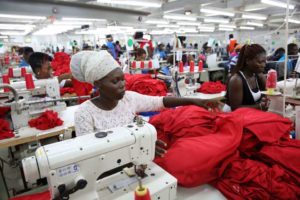
A profound change of our global food system is urgently needed. Despite recent progress, one in nine people do not have enough food to eat and another two billion lack the nutrition necessary for proper health.
In addition, global population growth, dietary shifts, and our changing climate are making it more difficult to produce enough food to provide healthy diets for everyone. If current trends continue, food production must double by 2050 to meet the world’s growing demand.
Almost two years ago, world leaders took an important step in this direction when they adopted the Sustainable Development Goals (SDGs), with the aim of building a better world in which no one would be left behind. We know that high growth and wealth created in the agriculture sector trickles down to the poor comparatively fast and creates jobs. Corporations must be part and parcel of this effort if we are to have a realistic chance of reforming our food systems to the benefit of the mal-and undernourished.
First, we need to increase agricultural productivity, particularly in developing countries, to reach SDG 2, which calls for ending hunger by 2030. This must include treating smallholder agriculture, which is predominant in Africa, as a commercial business and enabling the private sector to intervene and invest along with governments.
Second, we have to produce more food with less land, water and other resources. Regulatory frameworks need to be put in place and enforced to ensure that natural resources are managed in a sustainable manner. As floods, heat waves and other climatic shocks become more frequent and severe, farmers need access to drought and heat-tolerant seed varieties and conservation agriculture techniques.
Third, we need to put a much bigger emphasis on the quality of our diets, rather than just focusing on quantity. Poor nutrition inhibits people from thriving, and research has shown that the economic returns from investing in nutrition are well worth the effort, as better nourished populations are consequently more productive.
Fourth, we always have to ensure that the health and safety of the consumer remains at the core of all our efforts. For example, the abuse and improper use of antibiotics in livestock, aquaculture and crop production can pose considerable risks for human health. High food safety and nutrition standards along the entire agri-food chain are imperative four our future health.
Only if business, the public sector, and civil society collaborate, will we end hunger, once and for all.
By Former UN Secretary-General, Chair of the Kofi Annan Foundation





